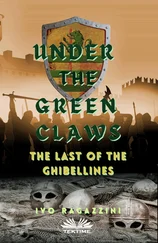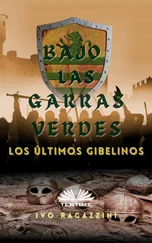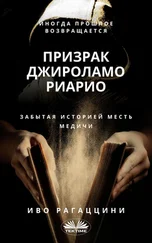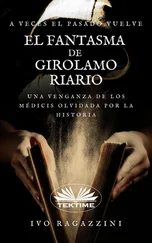"Nice strategy," said Hortensius.
"It is the simple Roman military school of today. When an army marches against someone and is attacking and is stopped somehow, it is already tactically defeated. And that's what Hannibal was able to do to Flaminius."
"And when an army that is defending something is somehow dispersed it is already tactically defeated. And it is another mistake that Flaminius and the Senate made against Hannibal, when they ordered Flaminius to leave the Rubicon and he began to pursue Hannibal through the mountains," said Caesar smiling to himself.
"But I, if required, will not make a similar mistake against Pompey," concluded Caesar.
"So what are we going to do against Pompey's two legions lined up on those lines waiting for us?" asked Hortensius.
"Nothing for now. I will officially hand over the land I have promised to the Gallic legions and legionaries in Romandia, and will send Curio and Mark Anthony to Rome to ask the Senate if I can be appointed Chief Consul of the Year," replied Caesar.
"And what will we do if they don't make you Chief Consul of the Year?"
"We'll march on Rome and explain it to them," said Caesar.
"Shall we also make a detour, as Hannibal did into the Alps, 16instead of crossing the Rubicon?" inquired Hortensius curious.
"No, you can no longer easily branch off towards the Alps."
"Why?"
"After the conflict against Hannibal and the death of Flaminius, Rome learned its lesson and built a road and a new defensive line on the Apennines called Flaminia minor 17in honor of his son, which allows, if needed, to quickly demobilize troops near the Rubicon and move them to garrison the defensive line through the Apennines. But that's not what worries me," Caesar replied, smiling certain about what he was doing.
"Do you mean that we will attack and break through the Rubicon directly?" Hortensius asked, a little worried about this possibility.
"If you want you can, but the Rubicon may also be compromised," replied Caesar smiling.
"How?" asked Hortensius.
"Don't let this worry you for now, Hortensius. You know very well that many legionaries do not want, and do not intend, to attack the Rubicon because they could attract the revenge and the anger of the Gods who defend it, but I know that border well and I also know a few commanders and legionaries who guard it."
"And so?"
"When the time comes, and only if they don't make me Chief Consul of the Year as I expect, we will see what we will do," Caesar stopped talking.
Brief historical introduction
In ancient times, northern Italy and the Po Valley were divided into Gallia 18Transpadana and 19Cispadana to distinguish them from French Transalpine Gaul, Gaul beyond the Alps, which is northern France today.
The French Transalpine Gaul was called Gaul Chiomata, because they wore hair and lark wings over their helmets, while the Italian Gaul Cispadana, practically the entire Po Valley, was called Gaul Togata because they dressed in a similar way to the Romans and, in fact, they had a confederation with Rome, with whom they shared many customs and traditions.
When Caesar returned to Italy from French Transalpine Gaul he brought with him more legions than he had left with and amassed them in Romagna near the border of the Rubicon, which then divided the Italian Gaul Togata with the republic of Rome.
This was because, as he proceeded in his conquests, he had enlisted and formed several legions, called Gallic legions.
These Gallic legions were formed not only by fighters but also by many colonists, women and children followers, to whom Caesar had promised honors and land on Italian soil if they were victorious. Now that he had won, he had brought them to Italy with him and they were amassed near the Rubicon.
In view of the threat, the Rubicon was hastily reinforced by Pompey's troops to try to block Caesar in some way, after having amassed his legions near the Rubicon had in front of him a practically open pathway to Rome.
About thirty years earlier, that province and those lands had been ruined and depopulated by a violent civil war between Cesena, Forlì and Faenza, which had been won by the optimates under Sulla over the populares under Caius Marius, who was Julius Caesar's uncle. Then, Caesar, returning from the French Gauls, was resettling and reconquering this land with populations and legions that were following him from Gaul and Provence. 20
Many legionaries and settlers were offered this land beside this border as a reward, which they accepted, laid down their arms and colonized that place, which was called Roman-dia or Roman-via, which meant Roman crossing or road to Rome.
And, still today, there is a road that crosses it, which is called Via Romea, that is, Road to Rome and, that land, Romagna.
But Caesar suggested that his best Gallic legionaries continued fighting and, as a reward, he proposed to give them Rome itself in exchange, if they followed and supported him in his march to conquer Rome.
However, Roman legionaries and officers were also among Caesar's soldiers. Much discord and many doubts soon arose among them regarding the legitimacy and appropriateness of such an act.
Several Roman legionaries considered such a proposal sacrilegious and that they should remain loyal to Rome forever, while those in favor of the populares 21and of Caesar's uncle, Gaius Marius, who had been defeated years before by Sulla, wanted nothing more than to redeem themselves and take revenge on Rome and its optimates. 22
Thus they convinced many Gallic legionaries to consider it an immense opportunity to redeem themselves and become not only Roman citizens but also public officials, if they crossed the Rubicon and conquered Rome.
Moreover, then as now, Latin dialects spoken in the north were different to those spoken in central and southern Italy.
So, if anyone thinks the disagreements between northern Italy and Rome are the result of something that happened recently, they should look a little further into the past, because there were already various issues at the time of Caesar. Such as: whether it would be convenient for the Gauls in the Po valley to be considered citizens of Rome or not. Even then there were arguments between populations and tribes who wanted to continue to be autonomous, federated or federalist if you prefer, while others wished to become citizens of Rome instead, with all the advantages and disadvantages this would involve.
The borders between the north and Rome existed already and were first traced out in the minds of people and their traditions and only then drawn on the ground.
And Caesar was the first to grant Roman citizenship to the populations of the Italian Gauls. This was shortly after they had crossed the Rubicon and won the civil war against Pompey.
Thus, Caesar amassed and deployed his troops before the Rubicon near Cesena and began to distribute much land as prizes and spoils of war, especially to his Gallic legions that had followed him on his return to Italy.
The Gallic legions were mostly composed of Provençals from southern France and Aquitaine, from places then named Arles, Narbo Martius, Forum Julii, Forum Novempopuli, Forum Gallorum, Libertinorum and, in part, they recreated similar places in Romagna.
Crossing Liguria and the Apennine pass between Parma and La Spezia 23they came to Emilia, joined up with a few Gallic legions of the Po Valley, who were already stationed in Emilia, and began to descend towards the Roman-via, until they massed threateningly in front of the Roman troops under Pompey near the border on the Rubicon.
Thus the Gallic legions of Caesar began to resettle and reorganize that land which, one hundred and sixty years earlier, had been called Flaminia in honor of a consul named Flaminius whose name, among others, meant descendant of the Flamini, the high priests of ancient Rome. Flaminius had hastily built and fortified a defensive line, named Puniceus Rubicon, to prevent the Punic Hannibal from descending towards Rome, as we have read in a previous chapter.
Читать дальше








